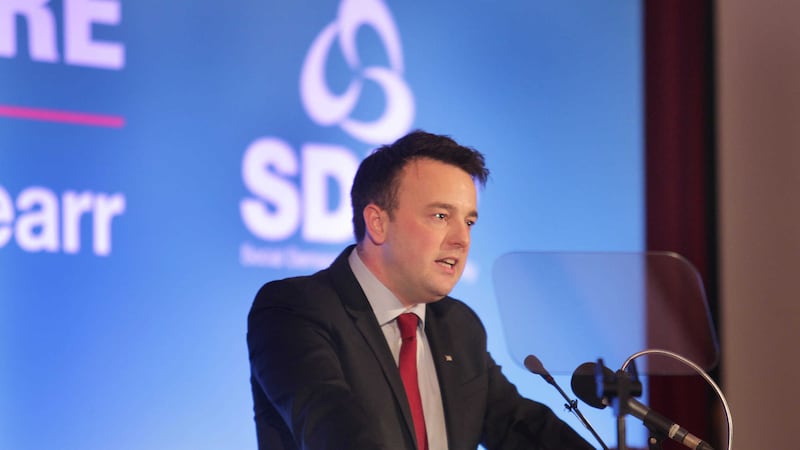A FEW weeks ago, just after the assembly election, I had a chat with a longtime friend and member of the SDLP about the fall in the nationalist vote.
“Has it,” I asked him, “dawned on nationalism/republicanism that a united Ireland isn’t even on the horizon anymore.” He thought for a while, smiled, and then, almost in a whisper, replied: “Well, Alex, it’s certainly no closer now than it was in 1921 or 1972; and I think even the Shinners would acknowledge as much privately.”
Last Saturday, addressing the SDLP youth conference, Colum Eastwood noted: “There is a harsh but honest reality to be faced. The inevitability of the nationalist project, of a reconciled political unity on this island, is no more. In fact, continuing to promote that inevitability is now a hindrance to the cause. The momentum formed and felt within nationalism from the early days of the peace process has stalled.”
Eastwood is right. Indeed, I remember writing a piece over a decade ago (just before the DUP/SF started to negotiate their own deal) in which I argued that an internal settlement, with the SDLP and Sinn Féin at the heart of a power sharing government in Northern Ireland, would actually make it much harder to deliver Irish unity. My reasoning was that such a government would probably—along with a nod of approval from the Irish government—be able to underwrite and protect nationalists here. More important, stability would make nationalists reluctant to rock any boats or undermine the status quo by pushing too hard for unity.
In other words, political stability and political inclusion would matter more than the prospect of instability and potential for violence that would accompany a border poll that delivered a vote to end the Union. It’s not that nationalists would have abandoned the dream of Irish unity; instead, they would have prioritised the authentic mammon over the bogus god. And in doing that they would also be less attracted to parties that had unity at the top of their political agenda.
For all of their happy-clappy, evangelical grandstanding about “a nation once again,” I’m pretty sure that Sinn Féin has finally stopped counting the turquoise chickens. Martin McGuinness is now locked to the hip with his third leader of the DUP and the drop in MLA numbers in 2021 (down to either 90 or 85) will make it almost impossible for SF to get the post of first minister any time soon. Worse, in 2021 SF and the SDLP assembly teams will have to smile politely in many of the official photo-opportunities while unionists celebrate the centenary of Northern Ireland. I bet they’re counting down the days!
Of course, as those nationalists who prioritise unity realise that the dream is on hold indefinitely they will not bother voting for Sinn Féin in the same numbers. Why would they? Why would anti-partitionists continue to vote for a party whose very presence in a partitionist assembly legitimises the partition they oppose? Sinn Féin will continue with the ‘unity project’ and the talk of border polls in the hope of convincing their base that unification is just around the corner. But they know it isn’t.
In the same way that it has taken someone like Eastwood to recognise that the unification momentum has stalled, it will take a new generation of SF leaders to recognize that same reality. McGuinness and Adams can never admit it because to do so would be to admit that everything else they did was wrong as well. But there’s only so long that you can remain in an assembly, governing this part of the United Kingdom, before even the most laid back supporters of your party ask, “Hang on a minute, when is this partitionist government going to be replaced by a united Ireland”?
So, kudos to Eastwood for raising the issue. That said, I think he’s mad to believe that the solution lies in a return to the ‘Young Irelander’ doctrine preached by Thomas Davis in the mid-19th century. His rallying call that, “We in the SDLP must be the Young Irelanders of today” is, frankly, nonsense. He might just as well have said: “I’m a young, progressive leader of a modern Irish nationalist party and my cunning plan is to resurrect a policy that is almost 200 years old.” Doesn’t sound quite so plausible when you put it like that, does it?
Here’s the unpleasant reality for nationalism: it is stuck with partition, stuck with unionism, stuck with Northern Ireland, stuck with the assembly and stuck with the British presence. And stuck with them for a long time to come.
The challenge for both the SDLP and SF is how they develop a role for themselves within that reality. More important, how do they develop that role when one is in the executive with the DUP while the other is in opposition with the UUP?








